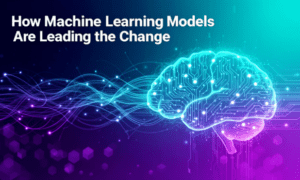The landscape of transportation is undergoing a dramatic transformation, driven by the integration of Machine Learning (ML) and Artificial Intelligence (AI) technologies. These advancements are not just incremental improvements but are fundamentally changing how traffic systems are managed, optimized, and maintained. The ability to predict traffic patterns, optimize traffic flow, and even prevent accidents through AI-driven solutions is revolutionizing urban mobility, making cities smarter, safer, and more efficient. As urban populations grow and the demand for efficient transportation systems intensifies, the role of AI and ML in traffic prediction and management has never been more critical.
Sachin Samrat Medavarapu, a Senior Data Scientist and a thought leader in this field, has been at the forefront of applying AI and ML to transform transportation systems. With a deep understanding of both technology and urban infrastructure, Medavarapu has spearheaded several groundbreaking projects that highlight the potential of these technologies.
One of his most notable achievements is leading the development of a Smart Traffic Management System that has significantly reduced urban congestion through real-time traffic management. This AI-based system uses advanced algorithms to analyze live data from traffic cameras, sensors, and GPS systems, allowing for immediate adjustments to traffic light timings and lane allocations. The result? A 30% improvement in traffic flow efficiency and a 15% reduction in average commute times. These outcomes underscore the transformative power of AI when applied to complex urban challenges.
Medavarapu’s work in predictive infrastructure maintenance is another testament to the impact of AI in transportation. By implementing machine learning models that predict when and where maintenance is needed, he has helped extend the lifespan of critical infrastructure while reducing maintenance costs by 25%. This proactive approach not only saves money but also prevents disruptions, ensuring that transportation networks remain reliable and safe.
In collaboration with leading transportation authorities, Medavarapu has also worked on optimizing toll collection processes through AI-driven traffic management systems. These innovations have led to a 15% increase in toll revenue, demonstrating how AI can enhance both efficiency and profitability in public transportation systems. Additionally, his contributions have earned him industry awards and recognition, cementing his reputation as a pioneer in smart city initiatives.
He emphasizes the importance of overcoming challenges such as data integration and real-time processing to achieve the full potential of AI in transportation. By successfully integrating data from multiple sources and developing scalable models, he has ensured that these systems are not only accurate but also capable of handling the demands of large urban areas.
He predicts that the future of transportation will involve even greater integration of AI, particularly with the rise of autonomous vehicles and decentralized traffic management systems. He advocates for interdisciplinary collaboration, combining expertise from urban planning, data science, and AI to develop comprehensive solutions that can adapt to the evolving needs of cities.
Through his work, Sachin Samrat Medavarapu has not only improved current transportation systems but also set the stage for future advancements. His contributions demonstrate the profound impact that AI and ML can have on making transportation systems more efficient, safe, and sustainable. As cities continue to grow and evolve, the integration of AI in traffic prediction and management will be key to creating smarter and more livable urban environments.



































